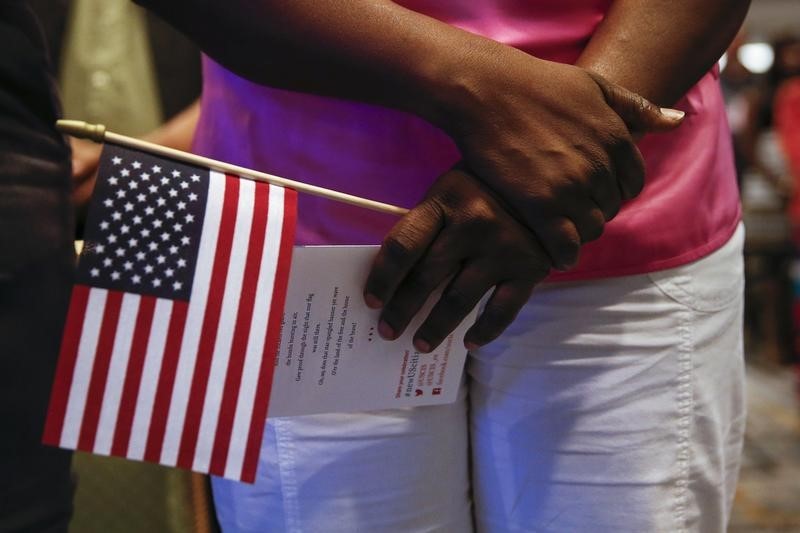By Sharon Bernstein
(Reuters) - While top contenders for the Democratic Party's presidential nomination swap zingers during Thursday's debate in Houston, Montana Governor Steve Bullock will be sipping beer and playing bar games with campaign staff at the Tipsy Crow Tavern in Iowa.
Fellow candidate Marianne Williamson, an author and self-help guru, plans to watch and critique the debate with supporters at the Writers Guild Theater in Beverly Hills, California. Former U.S. Representative John Delaney will be in New York, making his case on cable TV, spokeswoman Carrie Healey said.
Half the Democratic field, still 20 candidates deep, seeking the right to take on Republican President Donald Trump in the November 2020 election, did not poll high enough or rake in enough contributions to qualify for the party's third debate.
That leaves the bottom tier scrambling to find ways to stay viable in the absence of the debate's high national television exposure and raise their profiles in time to make the next debate in October.
"We’ll be talking to actual voters instead of trying to get a word in edgewise in a debate with 10 candidates," Bullock spokeswoman Galia Slayen said.
It is the second time Bullock has been excluded from the debate stage.
After failing to make the cut to square off against his competitors in June, the governor made the rounds on cable TV shows to complain that the party's process for deciding who gets to appear was unfair. He participated in the July debate.
On Thursday, he will hold two campaign events in Iowa during the day. Then he will head to a Des Moines bar to drink his favorite Iowa beer, Pseudo Sue, and toss beanbags into a cornhole game board during the debate, said his Iowa press secretary, Jeremy Busch.
Several other candidates also plan to spend time on Thursday in Iowa, which holds the first presidential nominating contest in February.
Billionaire activist Tom Steyer will hold a town hall meeting in Davenport. Former U.S. Representative Joe Sestak of Pennsylvania will speak to a high school class in New Hampshire before flying to Iowa to catch the end of the debate on TV with members of his staff, who plan to order pizza and beer to watch it from their hotel, said spokesman Evan O'Connell.
U.S. Senator Michael Bennet of Colorado, who qualified for the party's debates in June and July but did not meet the tougher standards imposed for the third round, will meet with workers in Iowa on Thursday, spokeswoman Shannon Beckham said.
'VISIBILITY'
Thursday's televised debate and the matchup scheduled for next month are crucial to the chances of candidates, most of whom have struggled to win name recognition and support from potential voters.
"It gives you a certain visibility," said Sestak spokesman O'Connell. "It's not only a question vis-a-vis voters, but it’s a box that has to be ticked for a lot of media as well, because there seems to be this premature desire to winnow down the field."
Sestak has yet to qualify for a debate, but O'Connell said the campaign was confident he would make one soon.
A Reuters/Ipsos poll released on Wednesday showed that Joe Biden, who served as vice president under Democrat Barack Obama, remained the front-runner, with 22% support from Democrats and independents.
U.S. Senators Bernie Sanders of Vermont and Elizabeth Warren of Massachusetts netted 16% and 11%, respectively. U.S. Senator Kamala Harris of California and South Bend, Indiana, Mayor Pete Buttigieg tied at about 4%.
Among the rest of the field, only New York entrepreneur Andrew Yang, U.S. Senator Cory Booker of New Jersey and former U.S. Representative Beto O'Rourke of Texas - all participants in Thursday night's debate - polled above 2%. The rest of the Democratic candidates were around 1% or less.
Despite the long odds, advisers to candidates left out of the debate insisted there was plenty of time for them to catch fire with voters before the first primaries and caucuses next year.
"Most Americans aren't yet tuned into this election," said Bennet spokeswoman Beckham. "And these are the people who need us to end politics as usual and make progress the most."
